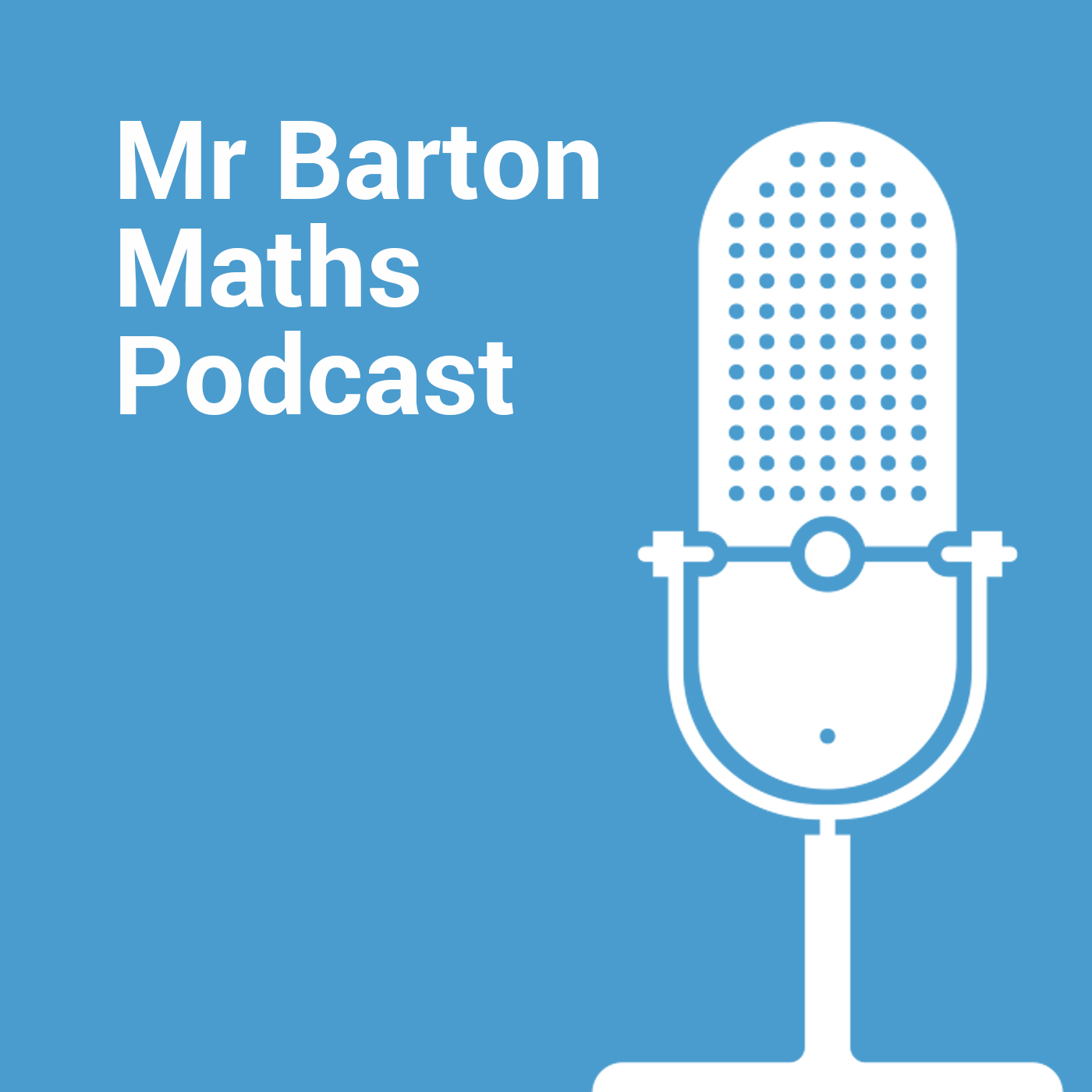
Craig Barton interviews guests from the wonderful world of education about their approaches to teaching, educational research and more. All show notes, resources and videos here: https://www.mrbartonmaths.com/blog/
Andrew is a head of maths at the creator of inquirymaths.org. We spoke about planning and delivering inquires in mathematics, explicit instruction, developing fluency, problem solving, and evaluated evidence related to memory, motivation and purpose.
For more information about today’s guest, plus links to the websites, resources and ideas they mention, please visit the show notes page: http://www.mrbartonmaths.com/blog/andrew-blair-inquiry-maths/

On this episode of the Mr Barton Maths Podcast, I spoke to Andrew Blair.
Andrew is the Head of Maths at Haverstock School, in Camden Inner-London, and the creator of inquirymaths.org.
Now, in recent episodes this podcast has featured guests who favour an explicit instruction approach to teaching – most notably my interviews with Greg Ashman and Kris Boulton. Speaking to these guests, together with the reading of educational research I have been doing over the last 12 months, has led to me moving rather rapidly along this path myself, favouring teacher-led instruction ahead of the rich tasks and investigations I so passionately believed in for most of my career.
This was why I was so keen to have Andrew on the show. I have known Andrew for many years, he is someone I admire and respect greatly. Indeed I interviewed him about inquiries and being a head of maths back in 2013 when I used to do my TES Maths podcast – a time where I considered a 1 hour interview a little on the excessive side. I will release this old interview as a special podcast in the next few weeks, as listening back to it in preparation for this show may me realise it is still very much worth a listen. Andrew’s Inquiry Maths website is a gold mine of ideas, complete with teacher guidance, examples of students work, and supporting resources for those wishing to try out inquiries. But there is no doubt that this approach to teaching and learning is the polar opposite to that favoured by many of the traditionalists. As the homepage of the Inquiry Maths website explains:
Inquiry Maths is a model of teaching that encourages students to regulate their own activity while exploring a mathematical statement (called a prompt). Inquiries can involve a class on diverse paths of exploration or in listening to a teacher’s explanation. In Inquiry Maths, students take responsibility for directing the lesson with the teacher acting as the arbiter of legitimate mathematical activity.
So, in a wide-ranging interview, we covered the following and more:
- Andrew describes in great detail how he plans and delivers a sequence of five structured inquiry lessons to a Year 7 class
- We discuss why inquiry lessons sometimes go wrong
- We look at the popular debate between explicit instruction and more minimally guided forms of instruction, and why Andrew feels it is not right to lump things like discovery learning and inquiries together
- Andrew answers a guest question from fellow podcast guest Kris Boulton about explicit instruction and problem solving – and I have promised Andrew he can have one for Kris in return
- I ask what are the major advantages of inquiries?
- Why does Andrew feel key skills and procedures can be taught within an inquiry, and how does this work practically?
- What type of classes do inquiries work best with?
- Should teachers in their first few years of teaching try to run inquiries?
- Are there a generic set of inquiry skills that can be taught within the domain of mathematics?
- And what does Andrew wish he knew when he first started teaching that he knows now?
I know I say this every time, but honestly, this is an absolute cracker. If – like me – you have been convinced by the arguments of Greg Ashman and Kris Boulton in recent episodes, I promise you this interview will give you food for thought. I had to go on a long walk after it – followed by a long lie down, followed by a pint of Guinness – to try and organise the thoughts whizzing around in my head. I will share what I have come up with so far in my Takeaway at the end of the interview.
The usual desperate plea to give me a rating and a quick review on iTunes if you have a spare minute, and thank you so much for those of you who have, and the incredibly kind words you have written.
On Twitter, Andrew is: @inquirymaths
Andrew’s Inquiry Maths website can be found at: inquirymaths.org
Andrew’s post on discovery learning
Andrew’s post on fluency
Andrew Blair’s Big 3 (with one extra!)
1. Bruce Ferrington – Authentic Inquiry Maths
2. Graham Henshaw – Enquiry-Based Maths
3. Simon Gregg – Following Learning
4. Amanda Klahn – Doing Maths
My usual plugs:
- You can help support the podcast (and get an interactive transcript of all new episodes) via my Patreon page at patreon.com/mrbartonmaths
- If you are interested in sponsoring an episode of the show, then please visit this page
- You can sign up for my free Tips for Teachers newsletter and my free Eedi newsletter
- My online courses are here: craigbarton.podia.com
- My books are “Tips for Teachers“, “Reflect, Expect, Check, Explain” and “How I wish I’d taught maths”
Thanks so much for listening, and I really hope you enjoy the show!
Craig Barton

Thanks so much for another great podcast. As an NQT primary school teacher bring able to access such great insights (some of which I have never come across before) has given me a new found confidence. Flippin’ brilliant!
That’s great to hear, thanks so much Adele!